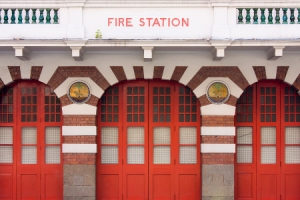Should the state fund more fire department Safe Station programs, like those in Manchester, to provide help for opioid addicts?

Earlier this month, Governor Chris Sununu announced that the state will provide $150,000 in funding for Manchester’s Safe Station program. Since the program began last May, Manchester fire stations have helped close to 2,500 people struggling with substance abuse find help.
Mayor Ted Gatsas lobbied the state for funding after it was found that over 65 percent of those who used the services came from outside Manchester. Beyond the immediate pledge of $150,000, Mayor Gatsas expects more state investment as the program continues.
How the Safe Station program works
Anyone over 18 who arrives at one of the Queen City’s ten fire stations seeking help with their drug addiction is taken to the nearest addiction treatment facility in a van provided by that center. If the individual arrives at the fire station between the hours of 8 P.M. and 9 A.M., a social worker or licensed drug addiction counselor provides him or her with a bed for the night. The patient is then transferred to a treatment center the next morning.
Manchester’s success has led other towns, including Nashua and Newmarket, to open their own Safe Station programs. While these programs promise to help more opioid addicts achieve recovery, they also strain fire department and recovery center resources. Some believe, given the success of the Manchester program, the state should fund Safe Stations in other cities racked by opioid crisis.
Pros and cons
Those in favor of state funding for more Safe Station programs argue that most towns do not have the resources to adequately fund such programs on their own. Still, proponents believe existing Safe Stations in the state have helped enough people find recovery that their cost is justified. After all, New Hampshire’s opioid crisis is among the worst in the United States. Therefore, it is incumbent upon the state to fund Safe Station programs in towns that have fewer municipal resources than Manchester.
Opponents argue that it is not the role of fire departments to coordinate treatment for opioid addicts. New Hampshire’s fire chiefs often complain they do not have enough resources to finance their regular operations. It would be better for the state to provide more funding to existing drug treatment programs rather than involving local fire departments. After all, those addiction recovery centers have far more experience coordinating rehabilitation for addicts than do firefighters. Fire Departments should be allowed to focus on putting out fires and making emergency rescues.
What do you think? Should the state fund more Safe Station programs to provide help for opioid addicts? Let us know what you think by leaving a comment – yes or no, and why – in the box below.











Comments
Login or register to post comments